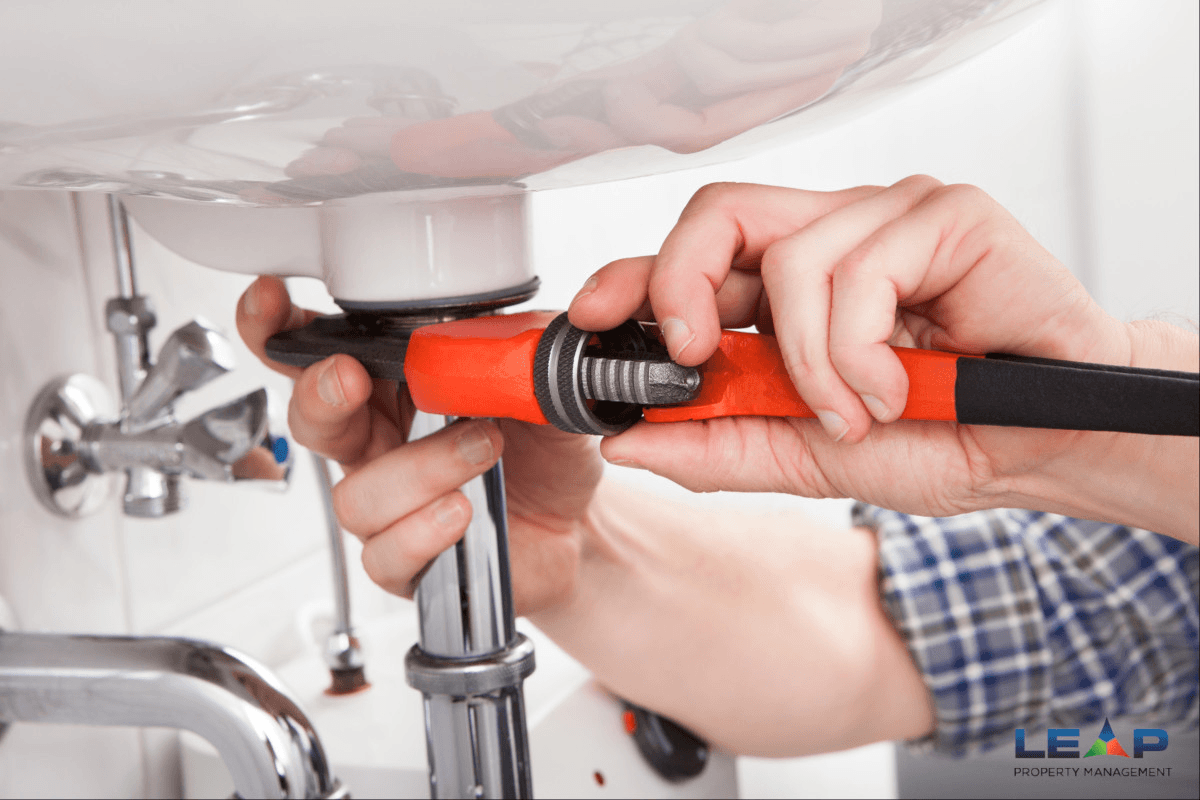
When it comes to property maintenance, as an owner, you have two main responsibilities.
The first is to provide a safe place for your tenant to live at all times. And the second, which is an offshoot of the first, is to take care of any problems with your property in a reasonable amount of time — and what timeframe would be considered “reasonable” depends on the problem.
If there’s something going on that threatens the health or safety of your tenants, that’s an emergency and needs to be handled immediately — but there are a lot of routine, non-urgent issues that tenants might frame as an “emergency” that don’t actually need your immediate attention.
For example, let’s say it’s 10 p.m. and a tenant’s toilet is backed up — but they have a second toilet that’s in perfect working order. They might want you to come out and fix it right away, but because they have an alternate toilet, that’s not an emergency — and the maintenance request can wait until the morning.
Same thing goes for a faulty garbage disposal, a dishwasher that won’t drain, or any other maintenance requests that might feel like an inconvenience to the tenant but don’t actually put their health or safety at risk.
As a rental property owner, it’s super important to understand the difference between emergency maintenance and routine maintenance requests because the two situations are handled completely differently.
With a routine maintenance request, you want to get things done in a timely manner for your tenant (typically between 24 and 48 hours). But with an emergency maintenance request, there’s a strict timeline — you need to move immediately, resolve the issue, and make sure your property is safe for your tenants.
Let’s take a look at routine vs. emergency maintenance requests — and, more importantly, how to handle them:
Routine/Non-Urgent Maintenance Requests
Routine maintenance requests are issues that are non-urgent and can be handled during normal business hours. Routine maintenance issues can include:
- Slow-draining tub or sink
- Running toilet
- Backed up shower diverter
- Blinds won’t open/close properly
- Burner on the stove isn’t working
Because these issues don’t threaten the health or safety of your tenants, there’s no need to treat them like an emergency. You’ll want to get them taken care of quickly, but there’s no need to deal with them immediately or outside of your normal business hours (so if a tenant calls at 11 p.m. and wants someone to fix their blinds, don’t worry — it can wait until the morning).
Emergency Maintenance Requests
Emergency maintenance requests, on the other hand, are... well, emergencies. These are the maintenance issues that can place your tenants in harm’s way — and they need to be dealt with immediately, whether they happen at 2 p.m. on a Tuesday or 2 a.m. on a Saturday. Emergency maintenance issues can include:
- Flooding
- Fire
- Inoperable windows (which could prevent the tenant from escaping in an emergency)
- Broken or inoperable door locks
- Gas leaks
- Electrical issues
If your tenant makes you aware of any of these issues, it’s imperative for you to deal with them immediately and ensure your tenants are safe.
The Role of Your Property Manager in Routine and Emergency Maintenance Requests
Now, if all of this feels overwhelming, don’t worry! It’s not your job to take the lead in these situations. All of these maintenance requests — whether routine or emergency — should be handled by your property manager.
At LEAP, we handle all maintenance requests for our clients — and the property manager is the main point of contact. With routine maintenance requests, our administrative assistants will collect the information for smaller jobs, but on any requests over $250, that call goes straight to the PM. We collect the necessary information, reach out to any necessary contractors or vendors, and get the request handled as quickly as possible.
Related Post: How to Switch Property Managers Without Hassle
With emergencies, our property manager immediately steps in, assesses the situation, and does anything and everything that needs to get done in order to protect both the property and the tenants. Our goal is to lead the entire process so we can save our clients as much time as possible; for example, right now we’re dealing with a flood at one of our properties.
Not only are we handling the emergency maintenance, but we’re also working with the insurance companies, managing the tenants who are staying in hotels in the area, fielding questions from neighbors... When all is said and done, we’ll have saved our client upwards of 40 hours on this emergency alone.
Final Thoughts
Maintenance requests — both routine and emergency — can take a lot of time and energy. And if you don’t know the correct way to handle them, they can also put your tenants and your property at risk.
If you want to handle emergency and routine requests efficiently (and save yourself a ton of hassle!), you’ll definitely want to hire a property management company to manage the process for you.


